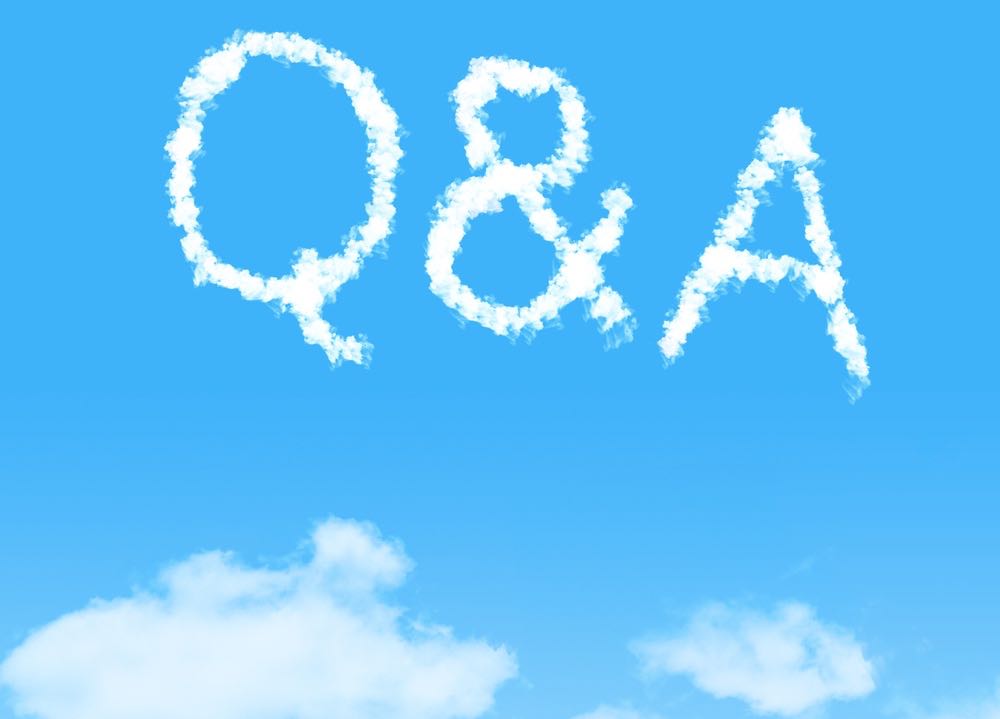
Welcome back for another installment of Ask TON. Here’s our latest question:
Sometimes, the best way to share a good interview is just to let a source speak in his or her own words. But writing a good Q&A isn’t as easy as ask-and-answer. There’s plenty of organizing before the fact, followed by (likely heavy) editing, condensing, or otherwise shortening into a reasonable, readable length with good flow.
If you’re assigned a Q&A with a well-known doctor or scientist, how do you approach it? What’s the one question you should definitely ask anyone, regardless of background? And how do you decide what to leave out of a Q&A?
Emilene Ostlind, science writer and editor of Western Confluence magazine:
Q&As can be tricky because they tend to have a halting structure rather than a narrative that leads the reader through from beginning to end. In answer to that challenge, the piece should show early on what’s at stake.
To really engage a reader, the Q&A has to answer the why. But why was the project worth funding? And why were you interested in this particular research question? Why should a reader care about your work? Why is this project important? Why will anyone care what results you get? Sometimes scientists need to be coaxed into talking about the bigger-picture meaning behind their work because in their academic- and research-publication-driven worlds they are trained to focus on minutia.
The Q&A should also build the interviewee into an interesting character. I like to ask way more questions than I am actually going to include in the piece, always searching for juicy unexpected bits that can reveal the interviewee’s true character or get at some deeper meaning behind the person’s drive and work.
Adam Hadhazy, freelance science writer:
A question I always like asking, as much for my own curiosity as for potential inclusion in the Q&A, is just how the heck the doctor/scientist person got into his/her field in the first place. Did he geek out on “Star Trek” as a kid? Did she try digging up dinosaur bones in her backyard, to much parental chagrin? I like the “origin” story, in a sort of comic book-like way—when did the scientist first learn of or develop his/her special powers? Sometimes the answer is totally boring. (“Well, I majored in biology in college and did my post-doc work in so and so’s lab, and now here I am.”) Other times, though, it’s inspiring and goes all the way back to childhood in a “Calvin and Hobbes”-esque flashback.
That said, the cool origin story may not really “fit” into a Q&A, especially a shorter one. I say this to segue into answering the second question. I think a major factor I try to keep in mind when deciding what to leave out of a Q&A is to provide some kind of narrative or logic. Ideally the order of the questions I set up prior to the interview facilitated the dialogue—and thus the resulting article—to proceed smoothly.
As for what gets cut, it’s usually the overly detailed bits. Say, for instance, I’m told the nitty-gritty details of something that are really interesting. Yet to include those details and have them all add up and make sense, I’d have to provide so much of the interviewee’s response that the word count gets thrashed.
In a Q&A, the unfortunate reality is that there’s always some great stuff that ends up on the cutting room floor. It’s frustrating. Sometimes the finished piece can feel to me, as the one who did the interview, kind of glib compared to the full transcript. But I think what I aim to do is provide enough solid, meaty info while keeping some “color,” by which I mean the neat turns of phrase the interviewee used, or maybe humor, such as evident sarcasm or understatement. It’s all about letting the interviewee’s unique personality shine forth in his or her words—there, that’s a good keep-or-discard rule of thumb!
Alan Boyle, science editor for NBC News:
Usually the standard last question is, “Is there anything else we should talk about that I didn’t ask about?” or somesuch. Other than that, it would probably be “What’s the biggest question you’re trying to answer, and what do you think the answer will turn out to be?”…tailored to the interviewee’s field if possible.


